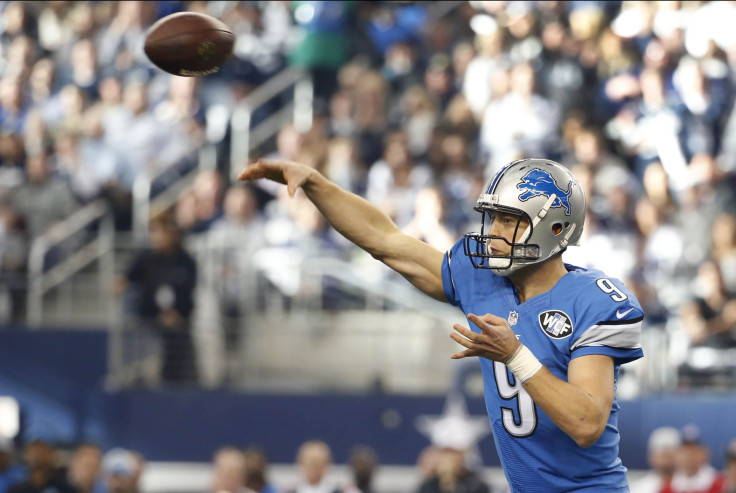Should The NFL Finally Get Rid Of The Pro Bowl?

After a dreadful showing at the 2012 Pro Bowl, filled with lackadaisical blocking, lazy route running, and players barely following through on tackles, NFL commissioner Roger Goodell reportedly considered canceling the league’s all-star game for good.
Three years later, with several adjustments made to the rules and how the league’s mega-stars are teamed up, the Pro Bowl appears to be on thicker ice as Sunday’s matchup between Team Michael Irvin and Team Cris Carter at University of Phoenix Stadium in Glendale, Arizona, looms.
But with so many serious issues plaguing the all-star exhibition for America’s most-beloved sport, it's possible the league could one day pull the plug.
“There were a couple of years it was horrible, when it seemed like tag football,” former NFL Players Association president Domonique Foxworth said to the New York Times. “But the players told me they enjoyed playing together, so I came up with some ideas to keep the game.”
The changes included naming alumni captains like Irvin and Carter, and drafting teams rather than pitting the NFC against the AFC beginning in last year’s game with Team Jerry Rice edging out Team Deion Sanders 22-21.
But even if the score is close, the real issue that keeps players from going full speed in the Pro Bowl is the risk of injury in an exhibition game taking place just before their offseason begins.
The average NFL career is a little over three years, and watching your career vanish in a technically meaningless game is something players and fans would like to avoid.
And while there is a vast monetary incentive for players to make the Pro Bowl and participate, nothing requires them to play well. Former player agent Joel Corey wrote for CBS Sports last month about the bonuses and incentives worked into the players’ contracts that are triggered by a Pro Bowl selection. Buffalo Bills defensive end Mario Williams, for example, will make $400,000 on top of the $18.4 million he received for the regular season by being selected and playing in the game. Essentially, Williams can play in one series and still collect a six-figure paycheck that is distributed to the winning team, should Team Carter prevail.
The possibility of sustaining a concussion also hovers over players, even if a game is played at less than full speed. The long-term health of players is one issue the league may never be able to escape, and for some who were recently eliminated from the postseason, like Green Bay Packers receiver Jordy Nelson , the Pro Bowl would be their 19th game of the season.
Some of the league’s biggest stars are turning down a chance to play in the game, albeit for some good reasons. Earlier this week, Baltimore Ravens quarterback Joe Flacco passed on his invitation to the game to stay home with his pregnant wife.
Flacco would have filled in for Denver’s Peyton Manning, who played the last month of his season with a torn thigh muscle. Eventually, Cincinnati’s Andy Dalton was selected as an alternate.
But perhaps the Pro Bowl is scrutinized so much because of its potential.
With the way the NFL’s salary cap is structured, it's rare to see such amazing combinations of star players outside of the Pro Bowl. Teams have 53 players to pay and can’t load up too much at the offensive skill positions because they also have to pay their top defenders.
Thus, it’s unlikely a highly-paid quarterback like the Cowboys Tony Romo would get to heave touchdowns to dynamic New Orleans Saints tight end Jimmy Graham unless it was in the Pro Bowl.
The same goes for the defense, with Team Carter rolling out a fearsome pass rush of Houston’s J.J. Watt, Buffalo’s Williams and Marcell Dareus, and the Chiefs' Justin Houston. No team, not even wheeling and dealing Dallas or Washington, could spread around enough salary to attract or keep that foursome together unless their No. 1 receiver could also take snaps at quarterback.
The Pro Bowl does also represent a chance for players in smaller markets to make a national name for themselves. When ESPN telecasts this year’s game, much of the focus will be on the quarterbacks like Romo, New Orleans’ Drew Brees and Indianapolis’ Andrew Luck, the prolific passers who serve as the league’s recognizable lighthouses to more mainstream or fringe fans.
But a young defensive stud like St. Louis Rams defensive tackle Aaron Donald, who’s a heavy favorite to win the Defensive Rookie of the Year honors, taking down Luck for a sack could be his entry way to a whole new level of stardom and opportunity at the very early stage of his career.
But fans care very little about a young player getting more national exposure, and instead wish for a highly competitive game one week before the Super Bowl, which is the last football game played for another seven months. For now, Goodell and the league are keeping the Pro Bowl, but until a number of competitive exciting games are strung together year-over-year, it will always be hanging by a thread.
© Copyright IBTimes 2024. All rights reserved.





















